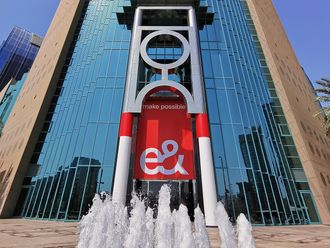Hong Kong: A global hunt for yield and a rebound in stressed commodity credits has seen India’s junk dollar bonds gain twice as much as those in China in 2016. Fund managers are positioning for more gains.
HSBC Global Asset Management says Prime Minister Narendra Modi’s administration is on the right track to improving India’s fiscal health and unlocking growth. Baring Asset Management (Asia) Ltd sees improved credit metrics at Tata Steel Ltd and JSW Steel Ltd, while Lombard Odier (Singapore) Ltd holds Greenko Energy Holdings and Vedanta Resources Plc. India’s U.S. currency junk bonds gained almost 20 percent this year, a Bank of America Merrill Lynch index of regional junk debt shows, versus 10 percent for China.
“Within high-yield in Asia, India still offers pretty decent opportunities compared to China,” said Dhiraj Bajaj, Singapore-based senior vice president at Lombard Odier, which manages $224 billion of client assets as of December 2015. “We are also comfortable with India’s macro situation and the narrowing fiscal deficit.”
India’s overhaul of bankruptcy rules in May has given foreign investors comfort and Moody’s Investors Service said this month’s approval of a national sales tax will have a positive impact on tax revenues and economic growth. Amid negative rates in Japan and Europe, inflows into emerging market debt funds are surging. Global investors poured a record amount of money into the funds in the week ended July 6, with developing Asia bonds a key beneficiary, according to data provider EPFR Global.
Yield hunt
“We haven’t seen any signs of a reversal of this low-yield environment,” said Sean Chang, head of Asian debt at Baring Asset which managed $35.7 billion of assets globally as of April 2016. “India, as one of the high-yielding countries, is going to benefit.”
BlackRock Inc said India’s high-yield dollar debt sector is small and performance can be “skewed” by a few names. “There is significant dispersion in performance across credits,” said Neeraj Seth, head of Asian credit at the firm.
HSBC Global Asset Management’s head of Asian credit Alfred Mui said that while some Indian BB names look expensive in absolute terms, compared with similar-rated names in China trading at similar yields, at least India offers a better macro story.
The yield on JSW Steel’s bonds due 2019, which are rated BB by Fitch, have fallen to 5.38 percent from 12.9 percent at the start of the year. Meanwhile, the yield on Indian Overseas Bank’s bonds due 2018, which are also rated BB by S&P Global Ratings, has fallen to 3 percent from 3.4 percent at the start of the year.
Steel, renewables
Indian junk companies are also benefiting. India’s proposed anti-dumping duty is expected to be positive for steelmakers profitability, Moody’s said earlier this month.
Lombard Odier likes renewable energy firm Greenko Energy, which sold a $500 million bond this month at a yield of 4.875 percent, because there’s a “chronic shortage” of electricity and energy in India, Bajaj said. Vedanta benefits from a lack of a domestic supply of commodities in the nation, he said.
The cost to insure debt in Vedanta has fallen 79 basis points since the start of the year, the most among Indian issuers, Bloomberg-compiled data show. HSBC Global Asset says it sees upside in some Indian resource company notes as they are still trading cheaper compared with global peers and the commodity cycle hasn’t yet bottomed out.
“From a valuation perspective, some of the bonds are not as attractive as they used to be,” said Bajaj at Lombard Odier. “But in light of trying to make a return, there is still some opportunity.”












